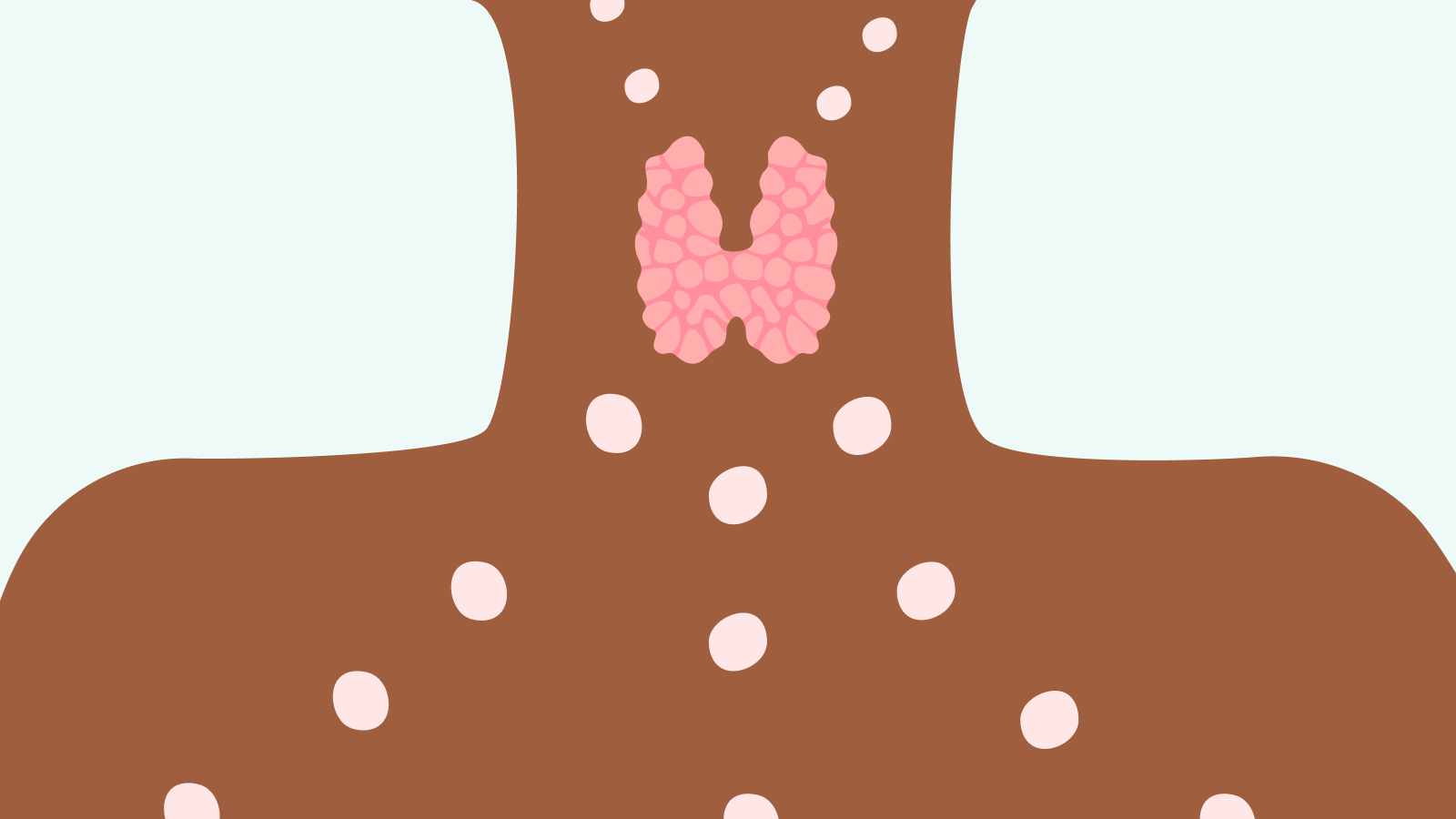Thyroid problems are among the most common health conditions in the world, affecting an estimated 200 million people globally. But not many of us fully understand the thyroid’s function and the key hormones involved.
The butterfly-shaped gland is found in the front of the neck and plays a big role in our health. The hormones it produces help to regulate our metabolism, growth and development, and maintain our energy levels and reproductive system.
Here, Livi medical doctor Dr Céline Guyomar has answered some of your biggest questions about the thyroid-stimulating hormone (TSH), including when to speak to a doctor.
What is TSH and what has it got to do with thyroid hormones?
The thyroid makes 2 hormones – triiodothyronine (T3) and thyroxine (T4) – and releases them into the blood. They regulate lots of different things in the body, including energy, metabolism, muscle strength, appetite, breathing and organ function.
‘When someone has too little or too much of these hormones in their bloodstream, this means that they have a thyroid disorder,’ Dr Guyomar explains.
TSH is also a hormone. It helps to make sure we have the right balance of thyroid hormones in our blood.
By secreting TSH, the anterior pituitary gland in the brain regulates the levels of T3 and T4 in the blood. When there’s too little, it releases more TSH, telling the thyroid to make more thyroid hormones. When there is enough, TSH production stops.
How and why do our TSH levels change?
People with underactive thyroids (hypothyroidism) may have too much TSH in their blood because there’s not enough T3 or T4 to tell the brain to stop making it.
People with overactive thyroids, or hyperthyroidism, can have too much T3 and T4 in the blood, which blocks the brain from making TSH.
Levels can also change with each stage of life. TSH levels usually spike in newborn babies shortly after birth, for example.
In addition, TSH levels are lower during the first 3 months of pregnancy when the additional needs of the body result in changes to the thyroid’s anatomy and function. This is why TSH tests are performed during pregnancy.
When would doctors measure my TSH?
There are 5 main reasons clinicians might measure TSH levels, according to Dr Guyomar:
- To check for suspected thyroid dysfunction
- To find out whether an abnormality in the secretion of thyroid hormones originates in the thyroid or the pituitary gland
- To check a thyroid disorder treatment is working
- To monitor thyroid hormone levels during pregnancy
- To screen for congenital hypothyroidism in newborn babies
How do doctors measure TSH?
Doctors use a blood test to measure TSH. Normal ranges vary but are between 0.5 mIU and 2.50 mIU per ml of blood.
People with high TSH levels may have hypothyroidism. In rare cases, it could be a sign of a pituitary gland tumour.
Low TSH is often a sign of hyperthyroidism. A second possibility is a toxic adenoma, which is an uncommon, non-cancerous tumour.
If TSH levels are too high or too low, doctors will usually carry out further tests, such as checking T3 and T4 levels, before making a diagnosis.
They may also check for other thyroid antibodies, including.
- Thyroid peroxidase antibodies (TPO), which can be a sign of Hashimoto disease or Graves’ disease
- Thyroglobulin antibodies (Tg), which can be a sign of Hashimoto disease
- TSH receptor antibodies, which can be a sign of Graves’ disease
Read our article on thyroid symptoms for more information on these thyroid-related disorders.
Are thyroid problems hereditary?
Some forms of thyroid cancer, such as medullary thyroid cancer, are genetic, says Dr Guyomar.
‘There’s also a form of inheritance whereby members of the same family might have different thyroid problems, but the thyroid diseases can be different’ she says. ‘For example, a grandmother may have hyperthyroidism and a daughter may have hypothyroidism.’
When should I speak to a doctor?
Anyone who has symptoms of an overactive or underactive thyroid should speak to a doctor.
Typical symptoms of hypothyroidism are:
- Tiredness
- Muscle aches
- Weight gain
- A slow heart rate
- Sensitivity to cold
The most common symptoms of hyperthyroidism are:
- Sensitivity to heat
- Weight loss
- Anxiety
- Irritability
- An unusually fast heart rate
- Insomnia
- Shortness of breath
‘In both cases, some psychological troubles, such as depression, could also be present,’ says Dr Guyomar. If you’re experiencing infertility issues, you should also request a thyroid check.
This article has been medically reviewed by Dr Céline Guyomar, a Livi medical doctor.


